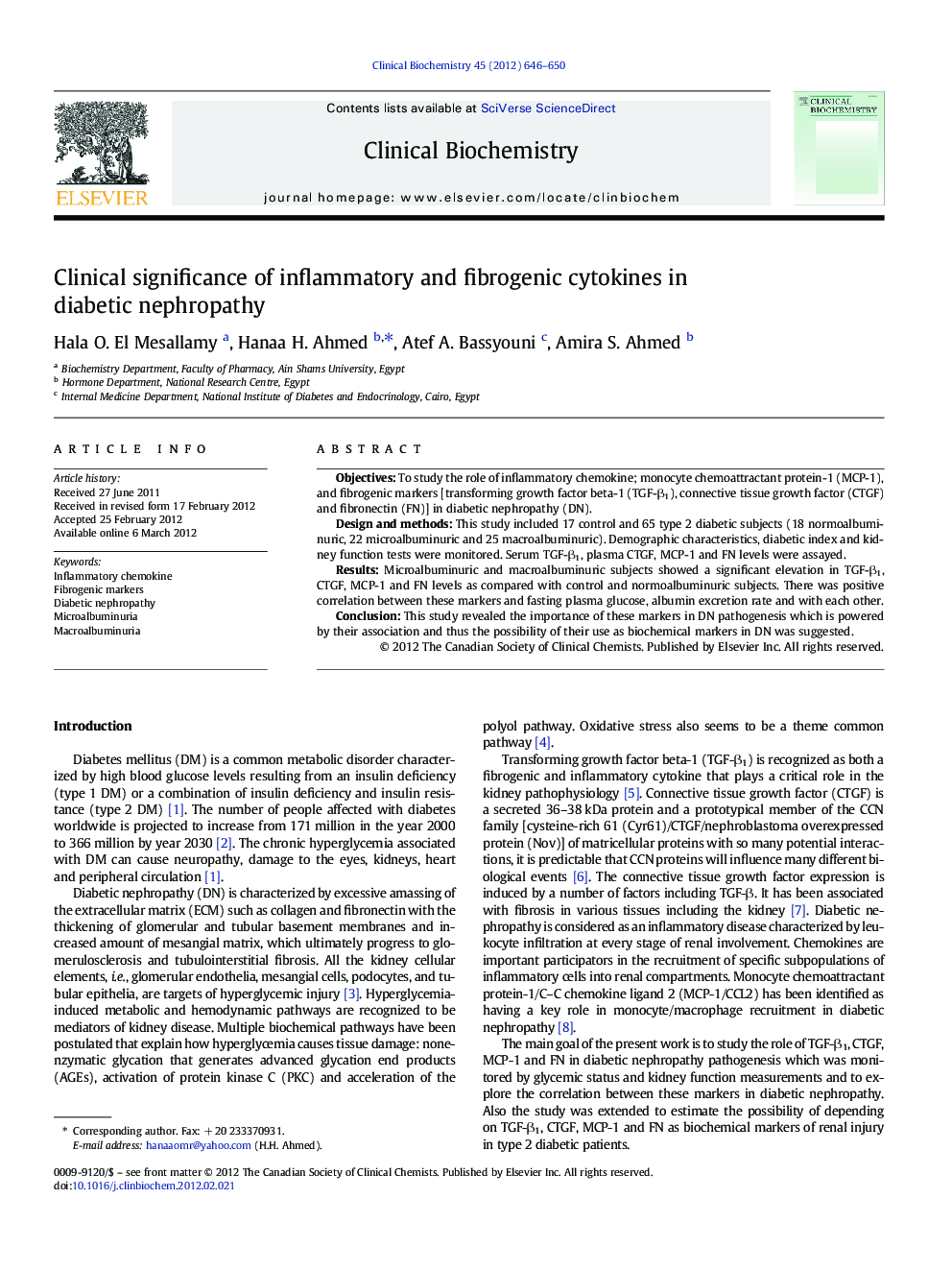| Article ID | Journal | Published Year | Pages | File Type |
|---|---|---|---|---|
| 1970344 | Clinical Biochemistry | 2012 | 5 Pages |
ObjectivesTo study the role of inflammatory chemokine; monocyte chemoattractant protein-1 (MCP-1), and fibrogenic markers [transforming growth factor beta-1 (TGF-β1), connective tissue growth factor (CTGF) and fibronectin (FN)] in diabetic nephropathy (DN).Design and methodsThis study included 17 control and 65 type 2 diabetic subjects (18 normoalbuminuric, 22 microalbuminuric and 25 macroalbuminuric). Demographic characteristics, diabetic index and kidney function tests were monitored. Serum TGF-β1, plasma CTGF, MCP-1 and FN levels were assayed.ResultsMicroalbuminuric and macroalbuminuric subjects showed a significant elevation in TGF-β1, CTGF, MCP-1 and FN levels as compared with control and normoalbuminuric subjects. There was positive correlation between these markers and fasting plasma glucose, albumin excretion rate and with each other.ConclusionThis study revealed the importance of these markers in DN pathogenesis which is powered by their association and thus the possibility of their use as biochemical markers in DN was suggested.
► Role of inflammatory and fibrogenic markers in diabetic nephropathy (DN). ► The study was conducted on two groups; control and diabetic subjects. ► The diabetic subjects included normoalbuminuric, microalbuminuric and macroalbuminuric. ► The studied markers revealed an important role in DN pathogenesis. ► The possibility of using these biochemical markers in DN.
